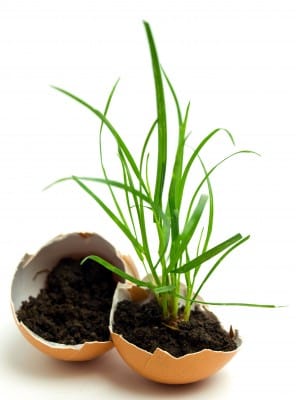PCC Natural Markets is unveiling a new alternative for dealing with food waste — a “harvester” system developed by Issaquah-based WISErg to produce liquid fertilizer.
The Seattle Times
By Erin Flemming
PCC Natural Markets is unveiling Tuesday a new alternative for dealing with food waste at its Issaquah location.
For the past two years, the local grocery co-op has been working with WISErg, a Washington startup developing a “harvester” machine to convert food waste into liquid fertilizer. All nine PCC locations will carry the fertilizer, a brown liquid the consistency of water.

Diana Crane, director of sustainability at PCC, said the co-op is testing the device and will soon decide whether to continue the partnership with WISErg.
She said the company was excited to participate in the pilot project.
“There was no downside for us,” she said. Once the harvester is commercially available, she said, “I think people will be beating down their doors.”
After working together at Microsoft, Jose Lugo and Larry LeSueur, co-founders of Issaquah-based WISErg, left in 2005 to independently pursue other projects. They both ended up looking into the possibilities of green projects involving anaerobic digestion — essentially composting without air.
In 2009, they reconnected through a mutual friend and formed WISErg, in the hopes of creating a new way to deal with food waste.
Similar anaerobic digesters have been used in agriculture and wastewater-treatment plants for years, but Lugo and LeSueur said they saw a need for this kind of system in an urban environment.
At first, the two co-founders financed their startup costs with some help from family and friends. Last year, WISErg obtained more funding from Microsoft alumni and Northwest Energy Angels to get the harvester up and running.
Brian Arbogast, an investor with Northwest Energy Angels who knew LeSueur from Microsoft, said he sees a lot of potential in the WISErg business model.
“The idea that you can mine urban waste and get valuable stuff out of it is very compelling,” he said. “I love the fact that they’re taking something that is a cost to companies … and then turning it into a product that is of high value.”
The WISErg harvester is made up of two large metal structures, the food-waste loading station and the processing unit. Employees of PCC dump organic materials into the loading system, where the material is weighed, ground up and transported into a silver structure resembling a silo.
In the silo, nutrients and liquid are extracted from the organic matter. The resulting slurry — which Lugo said is about the consistency of chili — is transported about every 10 days to WISErg’s processor.
There, it is broken down through anaerobic digestion, and goes through a chemical-stabilization process to create the liquid fertilizer.
One of the formulations has been approved by the Washington State Department of Agriculture for use in organic farming. It starts at $8 for a 32-ounce container.
The other formulation, with a higher level of nitrogen, has to pass national certification for use in organic farming, which could happen this year, said Tim Robie, organic-fertilizer engineer for WISErg. This variety starts at $12 for 32 ounces.
LeSueur and Lugo said their top priority when developing the harvester was simple: minimizing the nasty odor that comes with decomposing food.
LeSueur said they scrapped an earlier model of the machine because it couldn’t be serviced without an odor problem, and switched to the enclosed design.
“No matter how pretty or functional the system is, if it smells bad, nobody wants that in there,” Lugo said.
The harvesters will cost from $40,000 to $55,000 per store, plus $350 or more in monthly service costs, according to WISErg, which projects purchasers will get a return on their investment within seven years.
LeSueur said he hopes the idea of a “full-circle” waste cycle will appeal to other large producers of food waste, and that they are open to lease and purchase options for the harvesters at this point.
“What we realized very quickly is that we’re fortunate to be in the state of Washington and the Pacific Northwest because culturally people are receptive to the concept of composting or doing something different with this organic waste other than landfill,” LeSueur said. “But … they’re so focused on the traditional composting that they don’t necessarily see the value of it.”
When WISErg approached PCC, the store saw the “full-circle” benefits beyond just saving on compost pickup.
PCC sends its food waste to the Cedar Grove compost facility, but the sheer volume is difficult to manage, Crane said.
Brandon Baker, director of operations for WISErg, said the Issaquah PCC’s food waste, including organic material from its juice bar, totals approximately 600 to 800 pounds a week.
“It was hard for us to imagine that we were creating so much waste and not doing anything productive with it,” Crane said.
Debbi Montgomery, the Issaquah store’s director, said she’s excited to carry the fertilizer and also hopes to reduce compost pickup from three times a week to one.
She said the harvester has been received well by store staff. “They’re really pumped about it.”
Erin Flemming: 206-464-2718 or [email protected]

